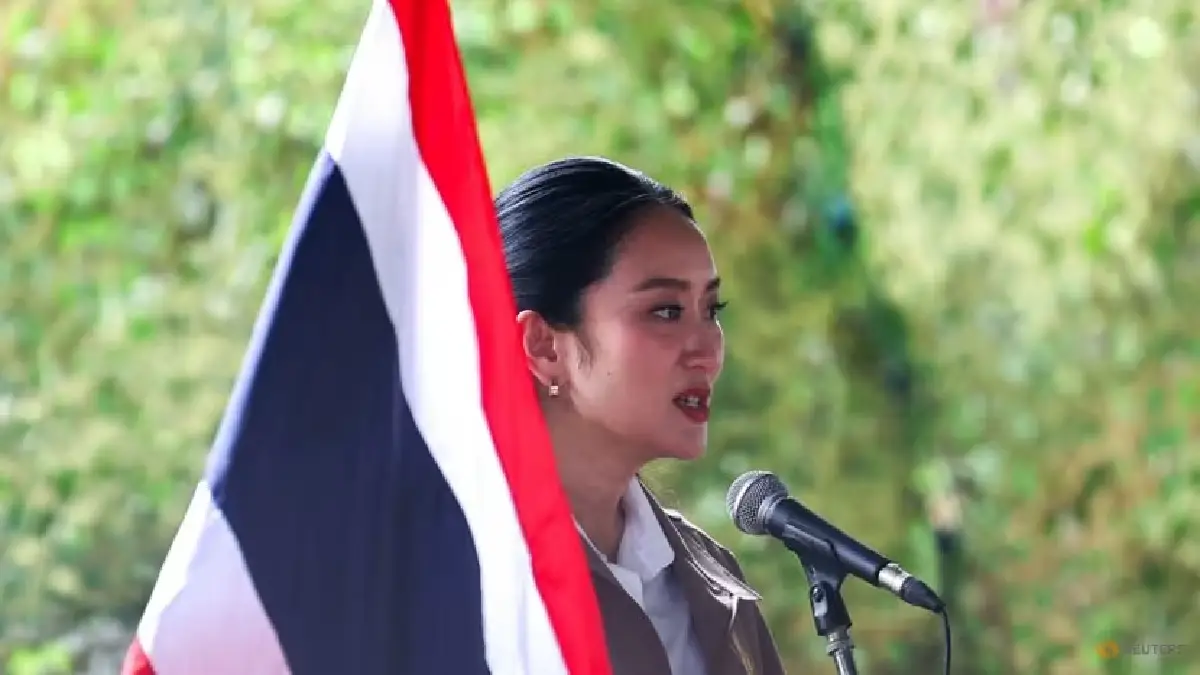On June 28, 2025, thousands of protesters gathered at Bangkok’s Victory Monument, calling for the resignation of Prime Minister Paetongtarn Shinawatra, Thailand’s youngest leader at 38, following a leaked phone call with former Cambodian Prime Minister Hun Sen. The demonstration, the largest since Paetongtarn’s Pheu Thai party assumed power in August 2023, was driven by nationalist anger over discussions about the contested Preah Vihear temple area. Organized by the nationalist group United Force of the Land, the protests highlight widespread frustration with Paetongtarn’s leadership, exacerbated by Thailand’s economic challenges and a fragile governing coalition facing a potential no-confidence vote in July. The unrest raises questions about the stability of her administration and Thailand’s political future.
Leaked Call Ignites Public Outrage
A 17-minute phone call between Paetongtarn and Hun Sen, recorded on June 15, 2025, and partially released by Cambodian media, sparked the protests. Hun Sen confirmed the leak in a statement on June 18, noting that the call was shared with associates. The conversation reportedly addressed border issues near the Preah Vihear temple, a UNESCO World Heritage site awarded to Cambodia by the International Court of Justice in 1962, though surrounding areas remain disputed. Thai media reported that Paetongtarn’s comments suggested the Thai military, specifically the Second Army Region commander, was hindering government efforts to manage border checkpoints. These remarks fueled accusations that she undermined national sovereignty, a sensitive issue in Thailand.
Paetongtarn issued a public apology on June 19, stating that she was unaware that the call was being recorded and stressed unity with the military. Thailand’s Foreign Ministry summoned Cambodia’s embassy to lodge a formal protest, signaling diplomatic tensions. The Preah Vihear dispute, a long-standing symbol of national pride, has historically strained relations, with clashes in 2011 resulting in 10 deaths. Recent negotiations for a 10 billion Thai Baht (~US$280 million) trade zone near the border have been overshadowed by the controversy, with critics calling for greater transparency to rebuild public trust.
Political Fragility and Coalition Challenges
Paetongtarn, the latest member of the influential Shinawatra family to lead Thailand, faces a nation marked by decades of political turbulence. Her father, Thaksin, and aunt, Yingluck, were ousted in military coups in 2006 and 2014, respectively, amid protests and judicial rulings. Pheu Thai’s populist policies, which prioritize rural development and welfare, have strong support in Thailand’s northern and northeastern regions but face opposition from urban elites and royalist groups. The current protests coincide with a critical moment, as the Bhumjaithai Party, a key coalition partner, withdrew support on June 20, 2025, citing disagreements over economic policies, according to Thailand’s National Assembly records. This leaves Pheu Thai with a slim majority of 245 seats in the 500-seat House of Representatives, increasing the likelihood of a no-confidence vote when parliament reconvenes on July 7.
Addressing the protests on June 28, Paetongtarn emphasized the importance of democratic rights. However, a successful no-confidence vote could destabilize her government. Thailand’s history offers cautionary lessons: groups like the United Force of the Land have previously fueled unrest against Shinawatra-led administrations, leading to judicial interventions or coups. In 2008, protests contributed to the dissolution of a pro-Thaksin government, and in 2014, Yingluck’s administration fell to a military coup. While the military and Constitutional Court have remained neutral as of June 28, their historical roles in shaping political outcomes raise concerns about potential intervention if tensions escalate.
Economic Struggles Amplify Discontent
Thailand’s economic challenges have intensified public frustration, amplifying the protests’ impact. The tourism sector, which accounts for 12% of GDP according to the World Bank, has struggled to recover from the Covid-19 pandemic. The Bank of Thailand projects 2025 GDP growth at 2.7%, lagging behind regional peers like Vietnam (6.8%) and Malaysia (4.5%), per IMF estimates. Inflation, at 3.2% in May 2025, has increased living costs, with rice prices reaching 450 Thai Baht (~US$13) per 10 kilograms. Paetongtarn’s 300 billion Thai Baht (~US$8.4 billion) stimulus package, aimed at supporting small businesses and rural areas, has faced criticism for slow implementation, with only 15% of funds disbursed by June 2025, according to the Thailand Development Research Institute.
Protesters expressed economic grievances alongside nationalist concerns. A factory worker at the rally said “We were promised jobs, but life is harder now.” Small business owners face rising costs, with Bangkok market stall rents ranging from 3,500 to 25,000 Thai Baht (~US$98 to US$700) per month, according to vendor associations. Infrastructure projects, such as a 50 billion Thai Baht (~US$1.4 billion) high-speed rail extension, have yet to deliver broad economic benefits. A 2024 World Bank report noted Thailand’s high income inequality, with the top 1% holding 20% of wealth, reinforcing perceptions that Pheu Thai’s policies favor rural voters over urban workers.
The coalition’s collapse was partly driven by economic policy disputes. Bhumjaithai pushed for cannabis industry subsidies, which Paetongtarn scaled back following public health concerns, as stated by the Ministry of Public Health on June 15. This rift weakened Pheu Thai’s legislative strength, further eroding public confidence.
A Nation Divided
The protests underscore Thailand’s deep political divisions, with Pheu Thai’s rural base clashing with urban and royalist factions. Younger voters have called for transparency on the border issue, reflecting broader demands for accountability. The controversy has strained Thailand-Cambodia relations, jeopardizing joint initiatives like the 10 billion Thai Baht (~US$280 million) trade zone.
As parliament prepares for its July 7 session, Paetongtarn faces a defining challenge. A no-confidence vote could exploit her coalition’s fragility, potentially leading to a government collapse. While the military and judiciary remain neutral, their historical influence looms large. The voices at Victory Monument reflect a nation grappling with its political and economic future, raising questions about whether Paetongtarn can navigate this crisis or face the same fate as her predecessors.















